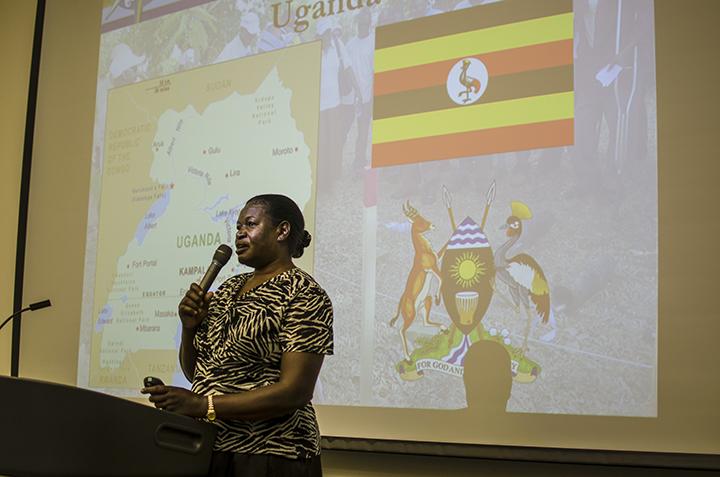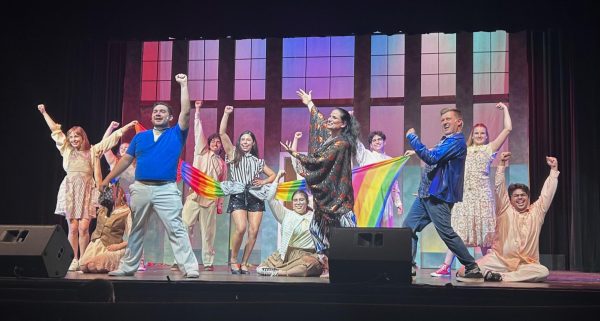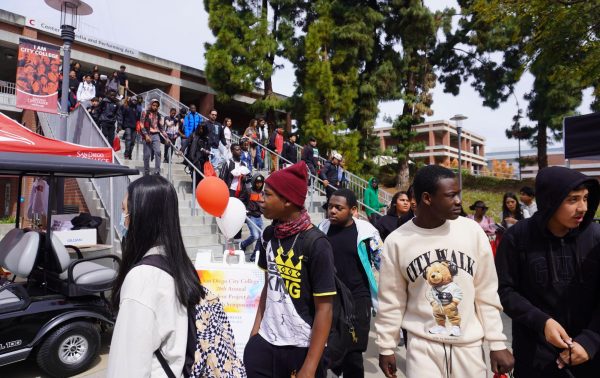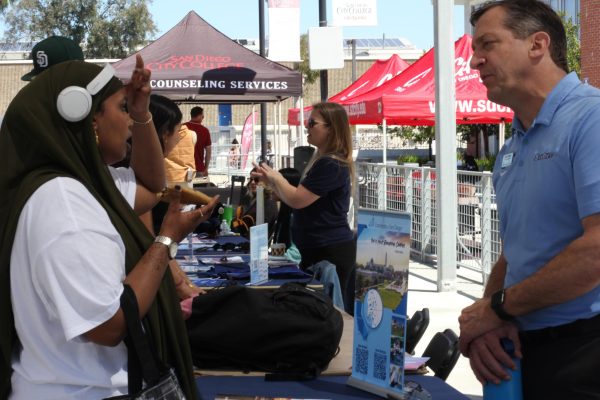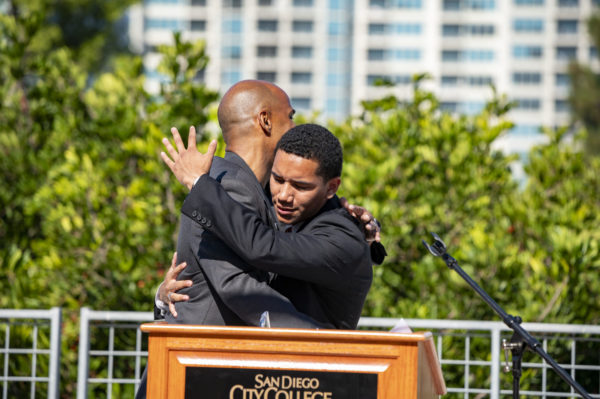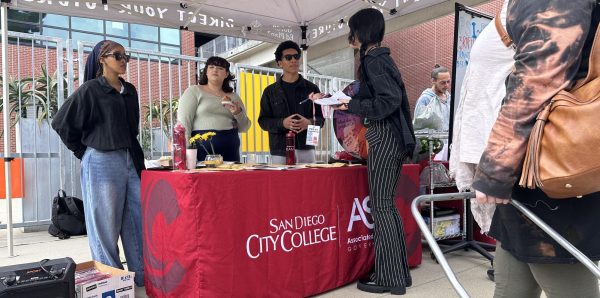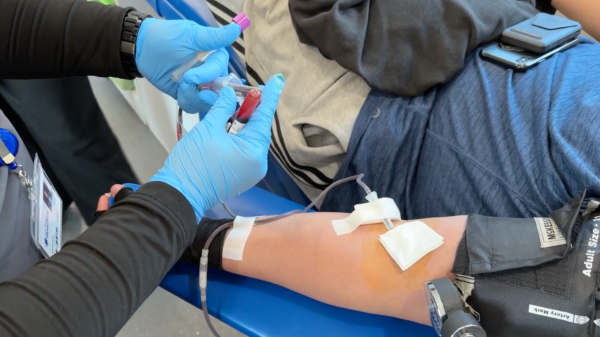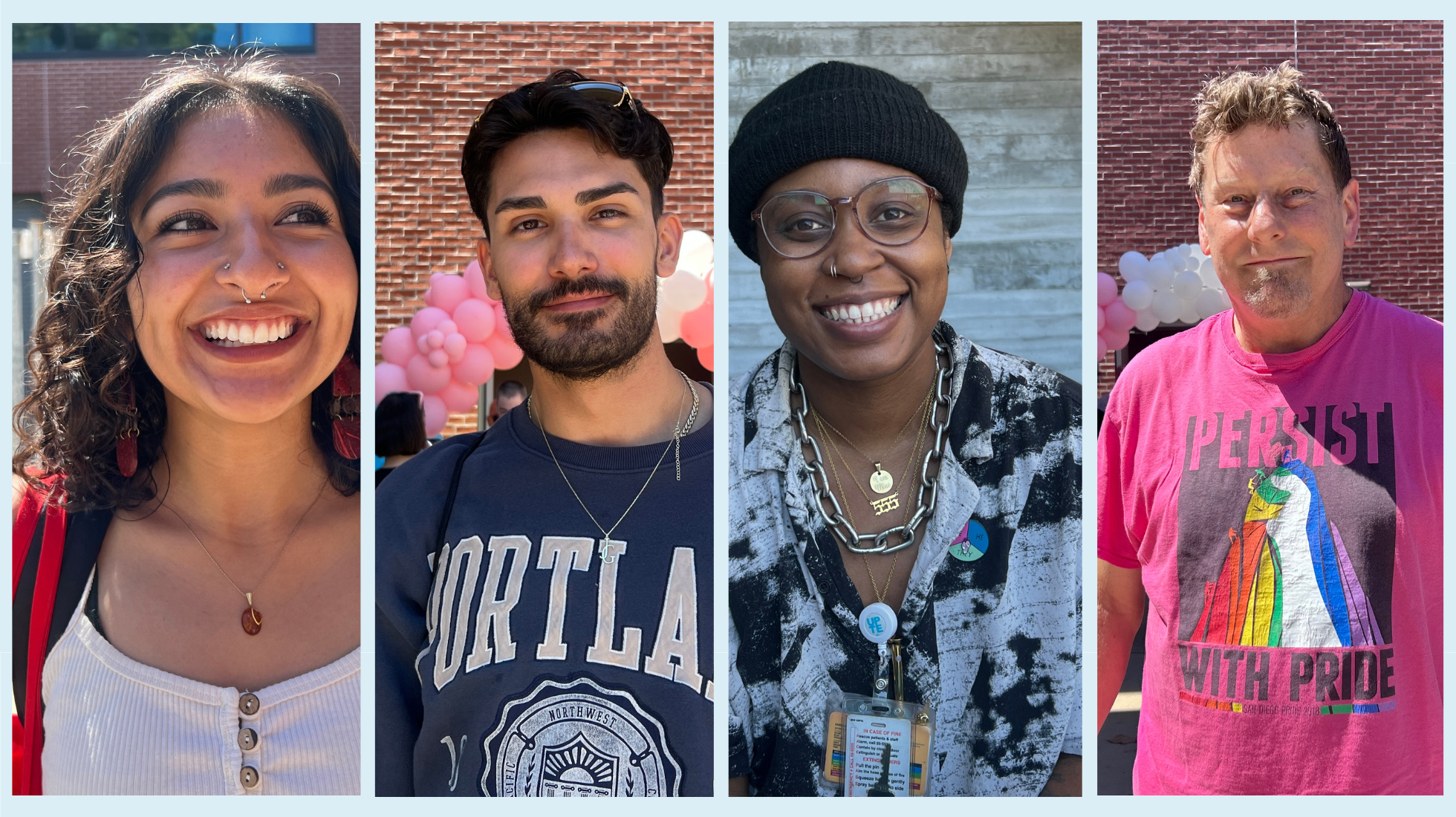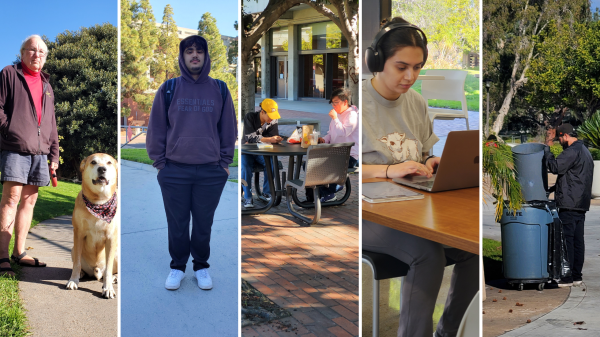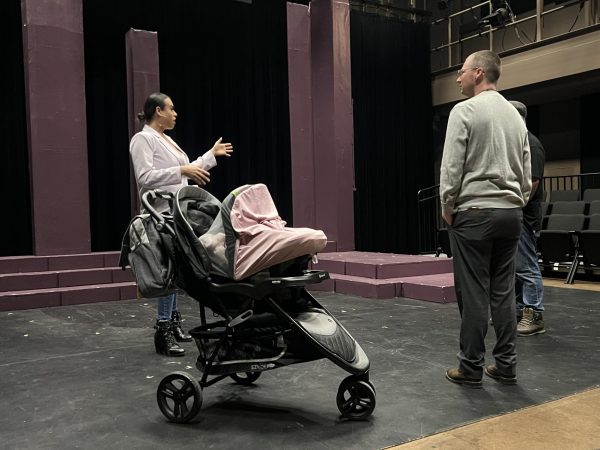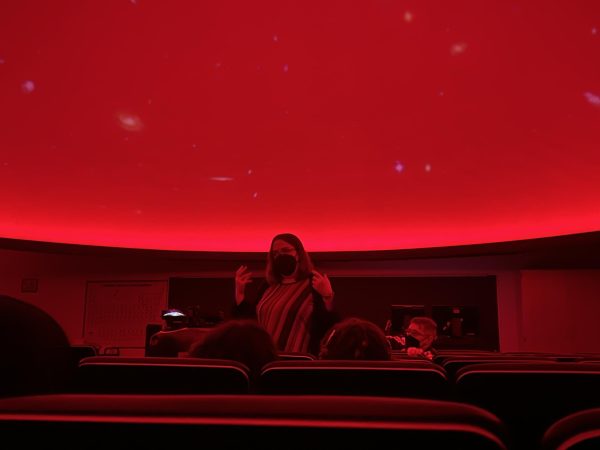Multinational women battle for change – Tales of three women make an impact and raise awareness during Women Peacemakers Conference
Margaret Orech speaks about land mine issues happening in her home country Uganda as part of an Oct. 22 event hosted by Peace Studies professor Katie Zanoni in MS-162. The event offered the perspectives of three women who described the state of inequality in countries around the world through a series from the Joan B. Kroc Institute of Peace Studies. Photo credit: Richard Lomibao
November 19, 2014
A juxtaposed embrace of silence and loud claps filled the auditorium of the MS building as attendees anticipated the next woman’s story.
Joan B. Kroc Institute of Peace Studies offers awareness on conflict happening across the globe, telling stories of inequality. On Oct. 22, three women informed students and educators about their personal issues on human rights.
Hosted by City College’s Katie Zanoni, professor of Peace Studies, she along with President Anthony Beebe introduced the three women: Margaret Orech of Uganda, Ashima Kaul of India and Nimalka Fernando.
Margaret Orech from Uganda is an advocate for people with disabilities, a spokeswoman for the International Campaign to Ban Land Mines, a single mother of five children and commissioner for the Interfaith Action for Peace in Africa.
Orech is a land mine survivor. The mine blast happened while she was visiting her family, three days before Christmas in 1998. She lost her toes on her right leg, which had her feeling paralyzed with frustration. Born in the city of Lira in Uganda she has witnessed several insurgencies. Land mine issues were silenced. A national plan has yet to be implemented due to lack of resources.
Uganda is told through Orech as a fruitful land accounted by the rich soil. Speaking from the plight of fellow land mine survivors, Orech hopes to change perspective and bring awareness to provide actual assistance.
Though the government has realized the land mine issues, Orech isn’t convinced it is a priority.
“A plan of action for victim assistance is in place, unfortunately, has not yet been implemented due to lack of resources,” Orech said.
Ashima Kaul of India is a grassroots worker, a journalist, a policy analyst, a social entrepreneur and founder of Yakjah Reconciliation and Development Network.
As a journalist in New Dehli, Kaul wrote about gender issues. She would reveal stories about women inequality, in spite of risking her own life in the process for standing up for such prejudice. In her research, Kaul found women resolve to the kitchen because there they feel safe, and she’ll reveal why in an upcoming book. Kaul believes change within identity starts with young people and showing them how to see the balance in themselves.
Kaul explained, “Peace is not fixing things outside, it’s about turning your face inside and working on your own self and begin to see consciousness is not only about being positive, but also accepting the negative.”
Yakjah Reconciliation and Development Network is a network of professionals from Kashmir, Jammu, Ladakh (Indian Kashmir) and other parts of the country. ”Yakjah’ is a Kashmir word that means ‘together,’ focusing on the youth to practice being mindful regardless of different backgrounds.
Nimalka Fernando of Sri Lanka, is human rights defender, a lawyer and an activist for more than 30 years. She is president of the International Movement Against All Forms of Discrimination and Racism, an organization that is forging international solidarity among discriminated minorities.
Fernando covers cases involving detained and disappearing students, which has become a silent issue globally for quite some time. She wishes government could be accountable for dead bodies in the result of war.
“They allow this massacre of innocent civilians,” Fernando stated.
Jennifer Freeman, senior program officer for the Peace and Security Women Peace Makers Program, narrowed down about 200 applicants to four women. A process that can take eight weeks once the women are picked, then invited to residence at University of San Diego where a peace writer documents their story.


